I am running into never ending update when there's uncommitted data in other session violating unique constraint.
Here's the scenario:
Say a table t has a unique contraint on one of its columns:
CREATE TABLE T AS SELECT 'PIPE'||level AS CODE, level AS pk_id FROM dual connect by level <=5;
ALTER TABLE t
ADD CONSTRAINT constraint_name UNIQUE (CODE);
Session 1 : Update a record but not committed
DECLARE
l_dummy NUMBER;
BEGIN
SELECT 1
INTO l_dummy
FROM t
WHERE pk_id = 2
FOR UPDATE NOWAIT;
UPDATE t
SET code = 'CHANGED' || 1
WHERE pk_id = 2;
END;
Session 2: Another record updated in a way that violates unique constraint on an uncommited data.
DECLARE
l_dummy NUMBER;
BEGIN
SELECT 1
INTO l_dummy
FROM t
WHERE pk_id = 1
FOR UPDATE NOWAIT;
UPDATE t
SET code = 'CHANGED' || 1
WHERE pk_id = 1;
END;
The query in session 2 runs forever.
dba_dml_locks marks this as "Non blocking"
In muti session environments this situation is more likely to happen.
I expect session 2 should atleast fail with an exception. But it doesn't.
In my scenario, both session 1 and session 2 are part of parallel executuion through DBMS_PARALLEL_EXECUTE and need to wait for each other to report success or failure. No exception in Session 2 would mean a never ending wait.
How to handle such scenarios?
Thanks
Edit:
I am trying to perform an atomic transaction in parallel using DBMS_PARALLEL_EXECUTE. i.e., Process and update multiple rows in a table parallely and only commit if all the chunks succeed else rollback all chunks. So each chunk waits for other chunks to report success/failure. Parallel processing with an instance is possible in other programming languages. I am trying to figure it out in Oracle DB.
